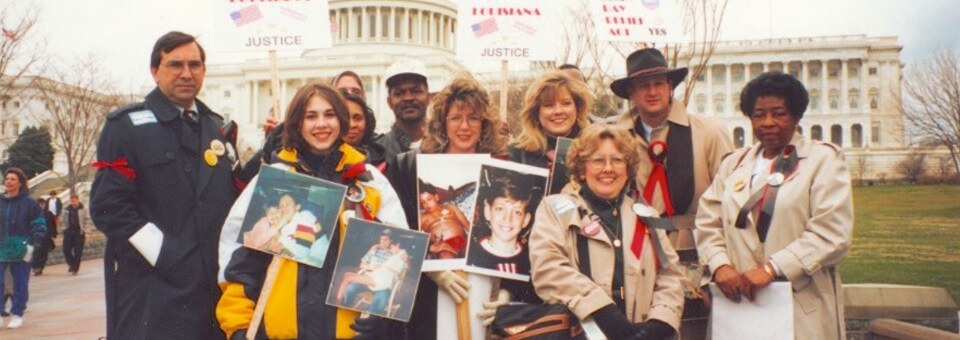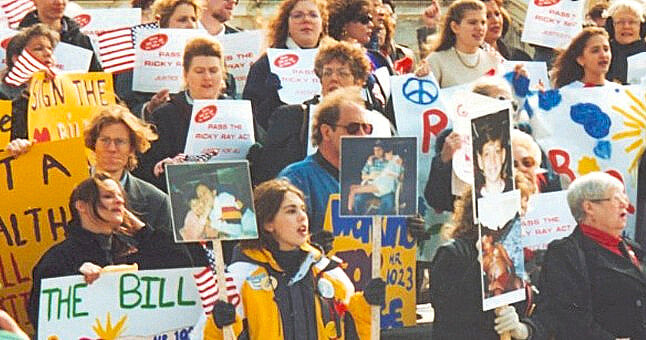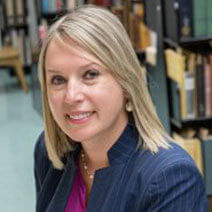The University of California, San Francisco (UCSF) Archives and Special Collections has received a collection of materials comprising 80 cartons (approximately 80 linear feet) from the Committee of Ten Thousand (COTT). COTT is a grass-roots education and advocacy organization that was formed in the United States in 1989 to support people with blood disorders who rely on a safe national blood supply.
Stephen Pemberton, PhD, a historian of American medical and social efforts to manage hemophilia reflects on COTT’s contributions and the impact of its activism, “The Committee of Ten Thousand played a leading role in advancing the interests of the U.S. bleeding disorders community during the 1990s and 2000s. COTT’s mission was informed by its members’ shared belief that the federal government, the blood-products industry, and traditional forms of hemophilia advocacy had collectively failed to prevent, mitigate, or respond appropriately to AIDS. From its founding, COTT sought to show that HIV infections among persons with hemophilia were preventable. COTT’s activism was critical in securing legal settlements, government relief, and blood policy changes that addressed core needs of persons living with transfusion-related HIV and/or hepatitis infections.”

Regarding COTT’s legacy, Pemberton notes, “COTT is a significant and unique health activist group – both in its relation to hemophilia advocacy and AIDS activism. Its actions paved the way to a safer blood supply and more vigilant forms of patient and consumer advocacy. In representing the interests of the ‘10,000’ Americans infected by HIV through blood-plasma products, COTT’s speech and actions ultimately spoke for the health interests of millions who rely on a safe national blood supply. Transfusion-related HIV and hepatitis is arguably one of the greatest public health catastrophes of the last century.”
Collection materials
COTT’s collection contains a variety of documents illustrating this important moment in public health history and advocates’ efforts. Types of documentation within the collection include newspaper scans, official records, and personal health records that individuals provided to highlight the impact that contamination and resulting illness had on their lives. Michael Allen, COTT’s president, remarks, “This collection represents decades of work to fight for patient rights after this tragedy. It represents the voices of the thousands of people who were infected and died of HIV/AIDS, the work by advocates who fought tirelessly and the lives of the loved ones we lost while fighting to shed light and bring justice to those affected by this contamination pandemic. It represents an undying fire that will always burn for blood safety.”
Some notable items within the collection include documents collected by COTT’s President Emeritus, Corey Dubin. Dubin was a talented investigative journalist, citizen scientist and politician. He was also appointed to the California Community Planning Working group that was tasked with drafting California’s HIV/AIDS Prevention plan in the 1990s.
Future advocacy and education
When considering the future of COTT, Allen and the COTT board members are committed to continuing education and the pursuit of justice. Allen shares, “We aim to use the knowledge gained from this archival project to fuel our blood safety advocacy efforts and educate the community about the tragedy as a cautionary example on why safe blood donations are important.” This archive will serve as a repository for the three decades worth of historical documentation and records of the organization’s initiatives.
Once the collection has been digitized it will be discoverable by the public via the UCSF Library website and the Online Archive of California. The digitized items will be accessible through Calisphere. Members of the COTT community who would like to contribute their materials to the collection are encouraged to contact the UCSF Archives and Special Collections.
Giving to the collection
Your support for this archiving project is greatly appreciated. Please consider making a gift by check or credit card to catalog and digitize the COTT Collection, thus making it broadly accessible for all.
By check:
Please make checks payable to the “UCSF Foundation” AND include in the memo “UCSF Library Special Collections – COTT, ID#7012953“.
| For gifts sent by U.S. Mail | For gifts sent by Courier (Federal Express, etc.) |
| UCSF P.O. Box 45339 San Francisco, CA 94145-0339 | Lockbox/Item Processing Operations MUFG Union Bank, N.A. 501 Canal Boulevard, Suite E Richmond, CA 94804 Attn: UCSF Foundation Lockbox 45339 |
By credit card:
- Go to http://tiny.ucsf.edu/UCSFarchives
- Click on blue box on top left
- Select “Other” and write in your designation of Special Collections – COTT, and continue to complete the online form
About the UCSF Archives and Special Collections
UCSF Archives and Special Collections is a dynamic health sciences research center that contributes to innovative scholarship. We actively engages users through educational activities, preservation of past knowledge, enabling collaborative research experiences to address contemporary challenges, and translating scientific research into patient care. Our mission is to identify, collect, organize, interpret, and maintain rare and unique materials. Furthermore, we aim to support research and teaching of the health sciences and medical humanities, and preserve institutional memory.
Press contact
For further information, please contact the UCSF Library outreach and marketing coordinator, Jessica Crosby at jessica.crosby@ucsf.edu. A selection of images are available by request. Download a PDF of the press release.
Sources
- Mission Statement & Vision. Committee of Ten Thousand. (n.d.). Retrieved February 10, 2023, from http://www.cott1.org/.
- Pemberton, S. G. (2011). The Bleeding Disease: Hemophilia and the Unintended Consequences of Medical Progress. Project Muse. Johns Hopkins University Press. Retrieved February 24, 2022, from https://muse.jhu.edu/pub/1/monograph/book/1877.

